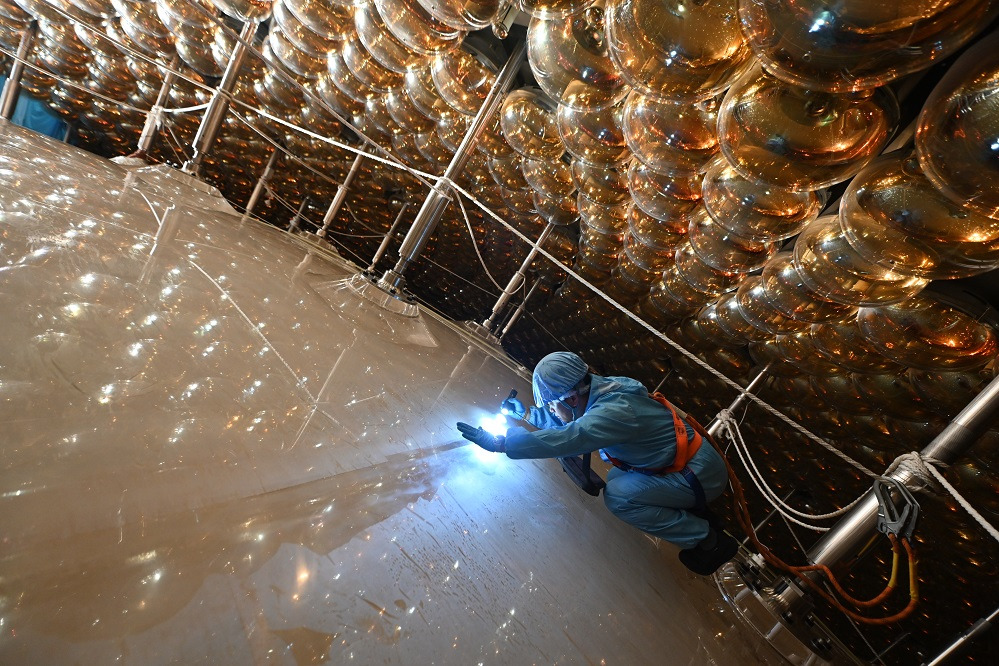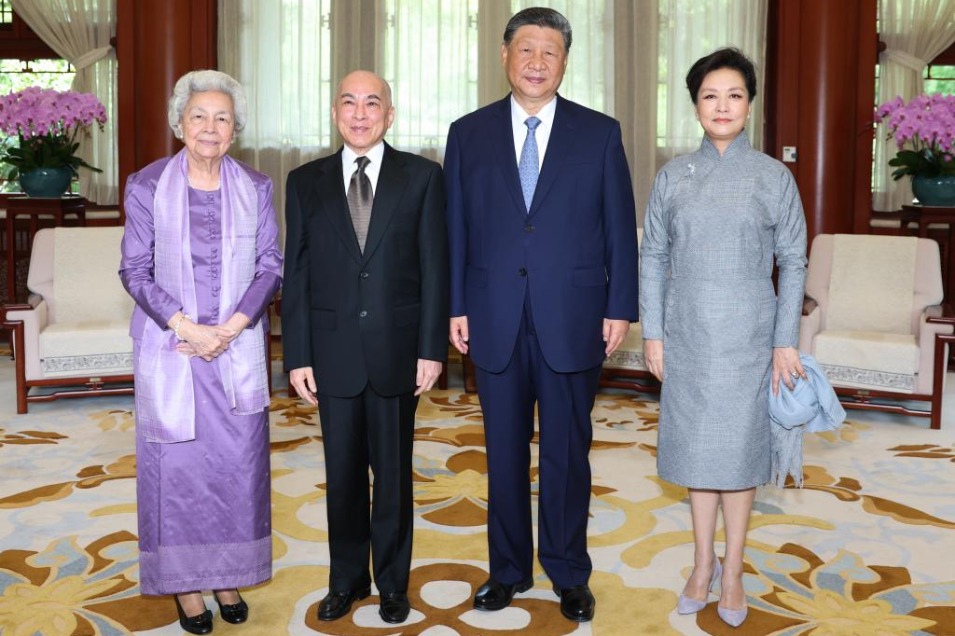Zuoquan remembers war general's sacrifice with pride
Revolutionary base now a hub of Red tourism

In the heart of the Taihang Mountains in northern China, the memory of General Zuo Quan (1905-42) has remained vivid and been cherished for over 80 years.
During the full-scale outbreak of the Chinese People's War of Resistance against Japanese Aggression (1931-45), Zuo served as the deputy chief of staff of the Eighth Route Army, assisting in directing guerrilla warfare behind enemy lines in North China. His grandson, Sha Feng, told China Daily how his strategic brilliance and bravery were instrumental in the fight against the invaders.
On May 25, 1942, the Japanese launched a massive offensive against the revolutionary base in the Taihang Mountains. Near Matian in Liaoxian county, Shanxi province, Zuo personally led his troops to protect the North Bureau of the Central Committee of the Communist Party of China and the headquarters of the Eighth Route Army during their breakout and retreat. Tragically, in the heat of battle, he was struck by shrapnel from a Japanese artillery shell and died at the age of 37.
"My grandfather fought for national independence until his last breath," Sha said. "It was just two days before my mother Zuo Taibei's second birthday. She spent only three months with her father."
To Sha, his grandfather was not only a valiant warrior but also a brilliant military strategist. His writings on ambush and assault tactics were crucial in guiding the Eighth Route Army's operations. The general also dedicated significant effort to the regularization of the army and the establishment of military factories.
As the 80th anniversary of the victory in the war and World Anti-Fascist War approached, Sha expressed a desire to write a letter across time to his grandfather, telling him about the prosperous New China, a realization of his dreams.
Shanxi, a major battlefield during the war, was home to the headquarters of the Eighth Route Army and several revolutionary bases. Zuo was the highest-ranking commander of the Eighth Route Army to be killed in action. In his honor, Liaoxian county was renamed Zuoquan county in September 1942, forever linking his name to the land he fought to protect.
Wu Xinyi, an 18-year-old who grew up in Zuoquan and recently graduated from high school, spoke of her pride in her hometown's name. "Every time I leave home and people hear 'Zuoquan', they are curious to learn more about our Red history and current developments," she said.
Zuoquan, known nationwide as an old revolutionary base, is now home to 269 revolutionary sites, earning it the title of an "open-air museum of the War of Resistance Against Japanese Aggression", said Guo Fenghui, head of the county.
In the summer of 2024, the Zuoquan County Shiziling Breakout Battle Memorial Park opened, marking the site where Zuo fought and fell, with a memorial pavilion quietly recounting the poignant history.
Tour guide Yang Zhenyu shares the story of Zuo's sacrifice, emphasizing the importance of passing down this history to younger generations. "There was a group of brave predecessors who bled and sacrificed for our happiness. It's something to be forever proud of," he said.
In recent years, leveraging its rich Red cultural heritage, Zuoquan has developed key attractions like the Matian Eighth Route Army Headquarters zone and the Tongyu 1941 Town project, establishing itself as a key destination for Red tourism in Shanxi.
To further preserve and teach this Red culture, a Red Culture Study Base was inaugurated in the county. The base aims to use the area's rich resources as educational tools, providing immersive experiences that allow young people to understand the depth of the revolutionary spirit and the warmth of history.
As summer unfolds, the historical sites, including the Matian Eighth Route Army Headquarters and Tongyu 1941 Town, bustle with visitors eager to engage in Red-themed activities. Since its premiere on June 1, the interactive Red drama Tongyu Defense Battle has become a hit, allowing visitors to don period costumes and participate in battle reenactments, experiencing firsthand the courage and conviction of the revolutionaries.
Liu Xiaodong, the 27-year-old director of the play, said: "Participants are no longer mere spectators; they are deeply immersed, fighting alongside actors. Through this interaction, they can truly feel the steadfast faith and bravery of the revolutionary forebears."
Ren Yingying, the operations manager at Zuoquan Cultural Tourism Development Company, expressed a commitment to making Red culture more engaging and accessible. "We aim to bring Red culture into everyday life in a vivid and experiential way, enhancing Zuoquan's reputation and influence."



Today's Top News
- A misjudgment of situation in the first place, destabilizing AUKUS deal may bite the dust: China Daily editorial
- Welcome would be welcomed if sincere: China Daily editorial
- Xi and his wife meet Cambodian King, Queen Mother
- Xi meets Russian State Duma chairman
- Parade a tribute to Chinese people's sacrifices in WWII
- SCO will strongly uphold multilateralism






























